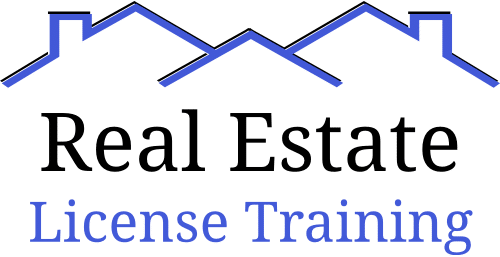Do you want to start a business in real estate but don’t have the capital to get started?
Real estate wholesaling could be the answer you’re looking for!
Real estate wholesalers earn profits by connecting motivated sellers with investors — without the need for extensive renovations or large investments.
If this is the path you want to go, we’re here to teach you how to become a real estate wholesaler.
So are you ready?
Let’s begin!
What is a Real Estate Wholesaler?
Before we get into the steps, it’s a good idea to dive deeper into this question.
This is because a lot of people get this real estate career confused.
To put it simply…
A real estate wholesaler acts as a middleman in a real estate transaction.
They find properties that are hard to sell (usually the ones in foreclosure, with legal issues, or need major repairs/renovations), assess them, then sell them to interested buyers.
Now, real estate wholesalers do NOT own the property.
Instead, they make a contract agreement with the owner to sell the property ASAP.
They then look for buyers that are interested and assign them the property and contract at a higher (but reasonable) price.
The wholesaler’s profit comes from the difference between the price they agreed to pay the owner and the price they sell the property to the end buyer.
This is a win-win for everyone.
Property owners are able to quickly sell their property without having to go through traditional marketing and selling processes. They don’t have to make repairs and pay for a real estate agent, too.
Buyers can find deals on properties that may not be listed on the market. These properties are also usually cheaper.
Real estate wholesalers can help others while earning however much they want.
How to Become a Real Estate Wholesaler – The 6 Steps
Whether you’re a seasoned real estate investor or are just starting out, you need to complete these 6 steps to become a real estate wholesaler:
- Research state requirements
- Look for off-market properties
- Contact sellers and negotiate
- Sign the contract
- Market your contract
- Assign the contract to an end buyer
Let’s get to the details…
Step 1: Research State Requirements
In most states, you DON’T need a real estate license to take part in wholesaling.
However, there are a few states and/or cities that require one.
So first go and do your research about whether your state requires a real estate license.
But whether it’s required or not, we highly suggest you get one.
This is because, for one, a real estate license will help you gain knowledge and experience in the industry.
You will learn about the local market, ability to find good deals, and skills in negotiating and closing transactions with buyers and sellers.
That will be a big PLUS to your real estate wholesaler career.
Moreover, you can access the MLS if you have a real estate license.
And the MLS is very important to help you easily find properties listed for sale.
Also, if a wholesaler is a licensed real estate agent, they can easily build a network — which is essential to a real estate wholesaler.
You can find other reasons why a real estate license is a MUST for real estate wholesalers here.
Besides real estate licenses, you must also research wholesaling laws in your area.
This is very important as you don’t want to do anything illegal.
Step 2: Look for Off-Market Properties
Real estate wholesaling is a low-risk, high-reward investment strategy.
This is because you find below-market properties and quickly sell them to buyers for a profit.
While it may seem simple enough, successful wholesaling requires a LOT of effort, research, and network.
So first up, look for suitable properties that fit this investment strategy.
The best options to consider are:
- Distressed Properties
- Properties in suboptimal conditions
- Foreclosures
Now, to identify these types of properties, you can use resources such as the Multiple Listing Service (MLS), networking organizations, online real estate auction sites, foreclosure sites, and social media platforms.
You also need to look for properties that are in high demand.
Once you have identified a property that meets your specific criteria, it’s time to crunch the numbers and do your due negligence.
You need to determine the property’s fair market value.
You do that by analyzing other similar properties sold in the area, occupancy rates, and cash-on-cash returns.
It’s also important to estimate the cost of any necessary repairs.
After gathering this information, you calculate the after-repair value and the maximum allowable offer (MOA).
MOA is the highest price you can offer for a distressed property and still make a profit.
Step 3: Contact the Seller and Negotiate
A key skill you need to master is to effectively contact sellers and persuade them to work with you.
Once you have identified a suitable property and found an owner who is ready to sell, it’s time to make an offer.
When reaching out to a seller, it’s necessary to present your role as a real estate wholesaler and how collaborating can be an ideal way for them to quickly sell their property.
By contracting with you, the seller can benefit from your network of buyers and investors who are actively looking for investment properties.
Once you’ve made your initial offer, the seller will likely counter with a higher price.
This is where your ability to negotiate will be put to the test.
Your goal is to find a price that both you and the seller are satisfied with, while still leaving enough room for you to make a profit when you sell the property to another investor.
Negotiating effectively requires good communication skills, an ability to understand the seller’s needs and motivations, and a willingness to compromise.
Keep in mind that you need to remain professional and respectful throughout the negotiation process. This can help build trust and establish a positive working relationship with the seller.
In some cases, it may be necessary to walk away from a deal if you’re unable to reach an agreement with the seller.
Step 4: Sign the Contract
If you can come to an agreement with the seller, it’s time to sign the contract.
This contract will serve as a legal agreement between you and the seller, outlining the terms of the sale.
Now, when drafting a contract, it’s important to involve a qualified real estate attorney.
This is so they can ensure that the contract is legally sound and in compliance with state law. This will prevent potential legal complications in the future.
Another thing.
Make sure that your contract includes a clause that explicitly grants you the right to assign the contract to another party.
You also need to include a contingency that allows you, as the wholesaler, to withdraw from the deal if you’re unable to find a buyer before the contract expires.
This will protect you from unnecessary risk.
Step 5: Market Your Contract
It’s time to market your contract to buyers!
One effective strategy is to leverage online real estate platforms and social media to connect with potential buyers.
There are several real estate investor groups and forums online where you can post information about your contract and connect with interested buyers.
You can use social media platforms such as Facebook and LinkedIn to build your network and reach a bigger audience.
Another effective strategy is to work with a real estate agent or broker who specializes in investment properties.
They can help you identify potential buyers and market your contract to their network of investors.
No matter where you market your contract, ALWAYS provide clear and detailed information about the property and the terms of the contract.
Step 6: Assign the Contract to the End Buyer
When you find an interested buyer and successfully negotiate the terms of the contract, it’s time to reassign the contract to the end buyer and close the deal.
The reassigning process involves transferring the rights and obligations of the contract to the end buyer.
You will need to prepare an agreement that outlines the terms of the transfer. This should include:
- The original contract terms
- Any changes or additions made during the negotiation process
- The assignment fee that you will receive for your work as a wholesaler
Before closing the deal, both parties will need to agree on the terms and conditions of the transaction.
Once both parties have signed the assignment agreement, the transaction can be closed.
The seller is finally able to sell their property.
The end buyer gets a great investment.
The real estate wholesaler goes home with a big profit.
Frequently Asked Questions About Real Estate Wholesalers
How Much Does a Real Estate Wholesaler Make?
There is no set price on how much a real estate wholesaler makes.
This is because it is all based on the “wholesaler fee”. In other words, the difference in price between the seller’s price and the amount the buyer agreed to pay for it.
When you’re just starting out, you might not be able to get HUGE profits.
But as you continue to wholesale real estate, gain more experience, boost your negotiation skills, and all that — you’ll be able to get bigger profits.
What is the Difference Between House Flipping and Wholesale Real Estate?
Real estate wholesaling and house flipping both involve property investment and profit-making.
But the key difference lies in the timeframe and property ownership.
Wholesaling has a shorter time frame and requires no repairs or modifications to the property.
House flipping, on the other hand, often involves major repairs and renovations.
Furthermore, wholesaling requires less capital.
I mean, you don’t actually need to buy the property and then sell it.
You only need to make an agreement with the seller and sign a contract.
This is the opposite of house flipping — in which you have to buy the property and pay the repair and renovation costs.
What Are the Pros and Cons of Real Estate Wholesalers?
Here are the pros to become a real estate wholesaler:
- You can get started right away.
- You can earn BIG profits.
- Success relies heavily on the wholesaler’s market knowledge and connection to investors for quick sales.
- It helps you develop strong negotiating skills.
- It’s a low-risk way to start a business.
- Requires little upfront capital.
- With a good network of investors, properties can be sold quickly.
- No credit score or property renovation experience is needed.
And here are some cons to becoming a real estate wholesaler:
- Finding properties and investors requires significant time and effort
- Deals can be unpredictable
- Profit margins are lower than other real estate investments
- Property owners may not be comfortable or familiar with this kind of strategy
- Money deposits may be lost if investors cannot be found
Conclusion
And that was how to become a real estate wholesaler.
All you need is a real estate license…
Experience in the real estate industry…
Lots of knowledge in the real estate market…
A solid network…
Research and assessment skills…
Good people and communication skills…
If you just follow the 6 steps listed here, put in the work, and continuously educate yourself — you’ll soon be a very successful real estate wholesaler.
So good luck!

